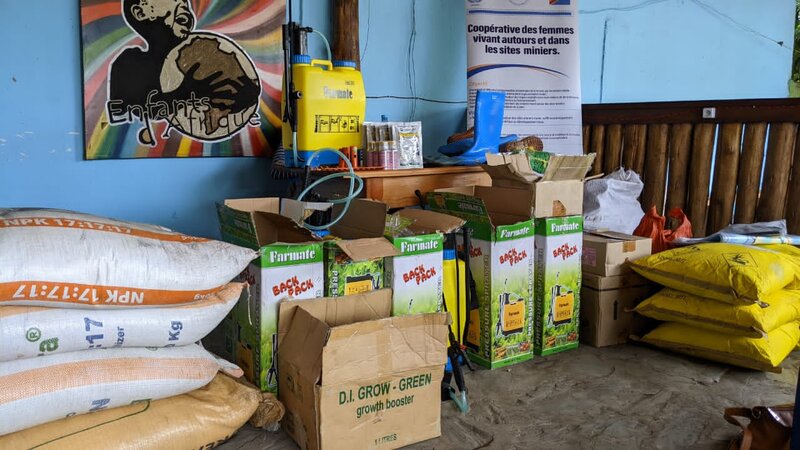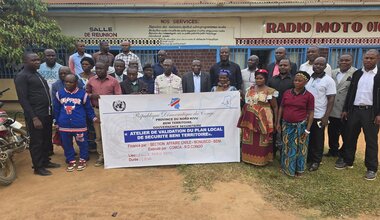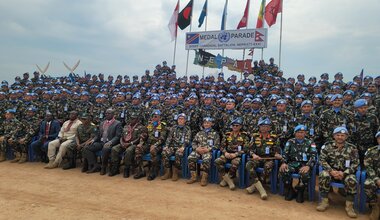North Kivu: Twenty women and young girls who survived the violence receive market gardening kits in Nyiragongo
Twenty or so women farmers were given market garden kits on Friday 10 June 2022 in Nyiragongo, in the Rutshuru territory, by the NGO COFEVAM, with the financial support of the United Nations Joint Human Rights Office (UNJHRO). They are among the sixty or so women and young girls who are mothers and survivors of violence in Sake and Nyiragongo who are benefiting from this conflict-related violence resolution (CVR) project. According to MONUSCO's gender section, these two localities recorded a high number of cases of sexual violence, particularly in October, November and December 2021 and in January and February 2022.
The main objective of this project is to strengthen the resilience of these women through socio-economic reintegration activities by teaching them a trade and providing psychological support. The kits distributed consist of potato seeds, hoes, sprayers, rakes, boots, overalls and many other products.
The provincial president of the Kumu community, Déogratias Tusi Bikanaba, expressed the beneficiaries' gratitude to MONUSCO. "The territory of Nyiragongo has long been battered and continues to be a victim of various forms of violence, wars and natural disasters. Today, MONUSCO and the NGO COVEFAM are distributing agricultural inputs so that the women of the territory can take charge of themselves, so that they can have resources that can help them overcome the difficulties to which they are subjected. We are very grateful to MONUSCO for this donation," he said.
For her part, the UNJHRO coordinator in Goma, Astou Mbow, hopes that this project has a positive impact on the minds of these women who have suffered violence. "That a woman who, through an activity, forgets a little of what she has suffered and if she can still work, it is a big step forward. If a woman can become independent, if she can support herself and her family, that is a valuable support for us," she said.
The five-month project is being implemented by the local NGO Cooperative of Women Living Around and in Mining Sites, COFEVAM.

 UN
UN United Nations Peacekeeping
United Nations Peacekeeping






